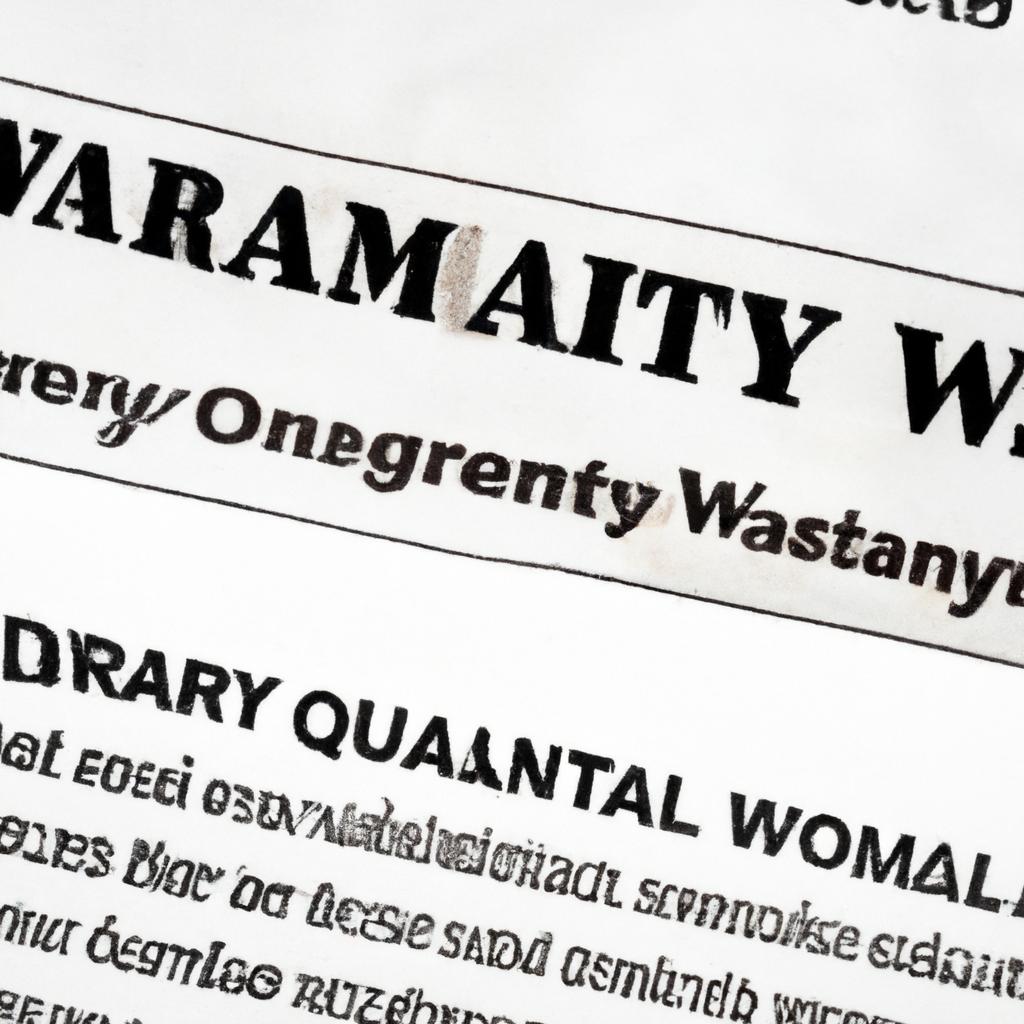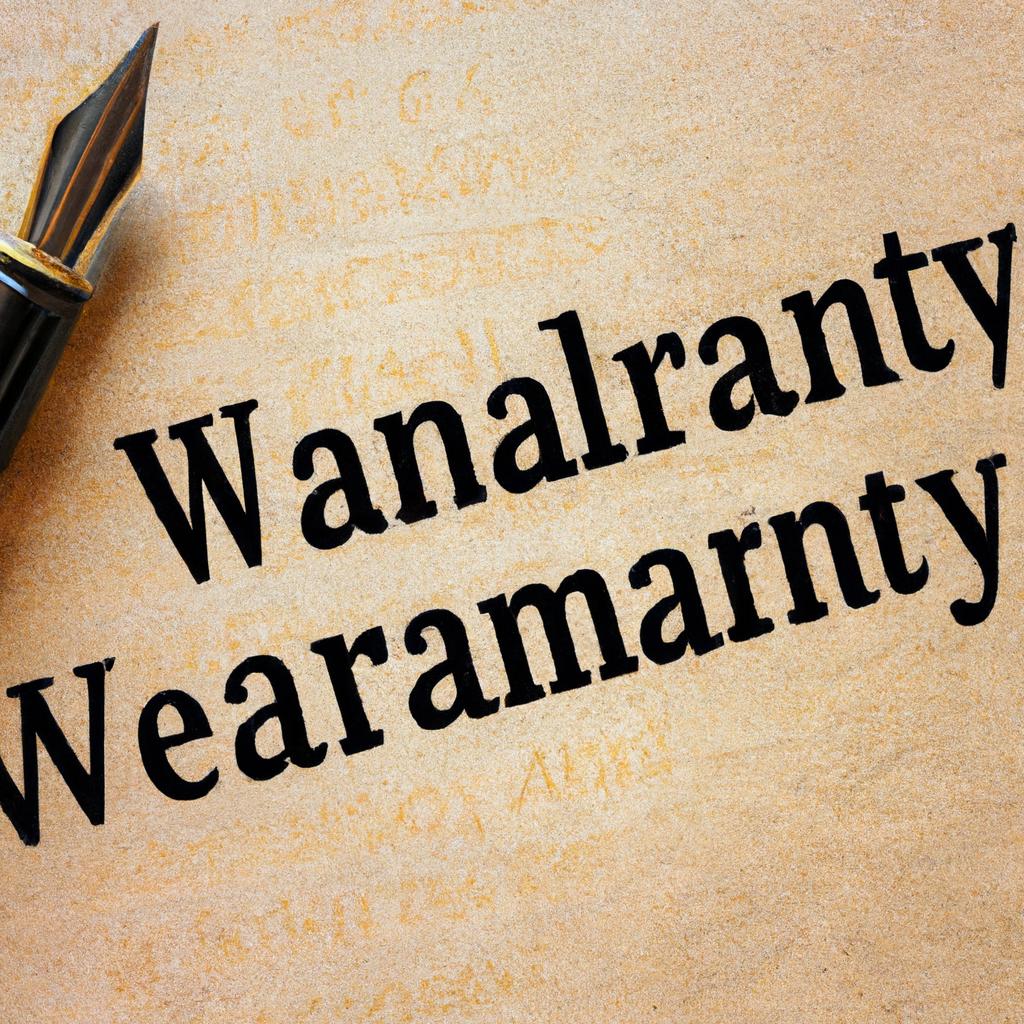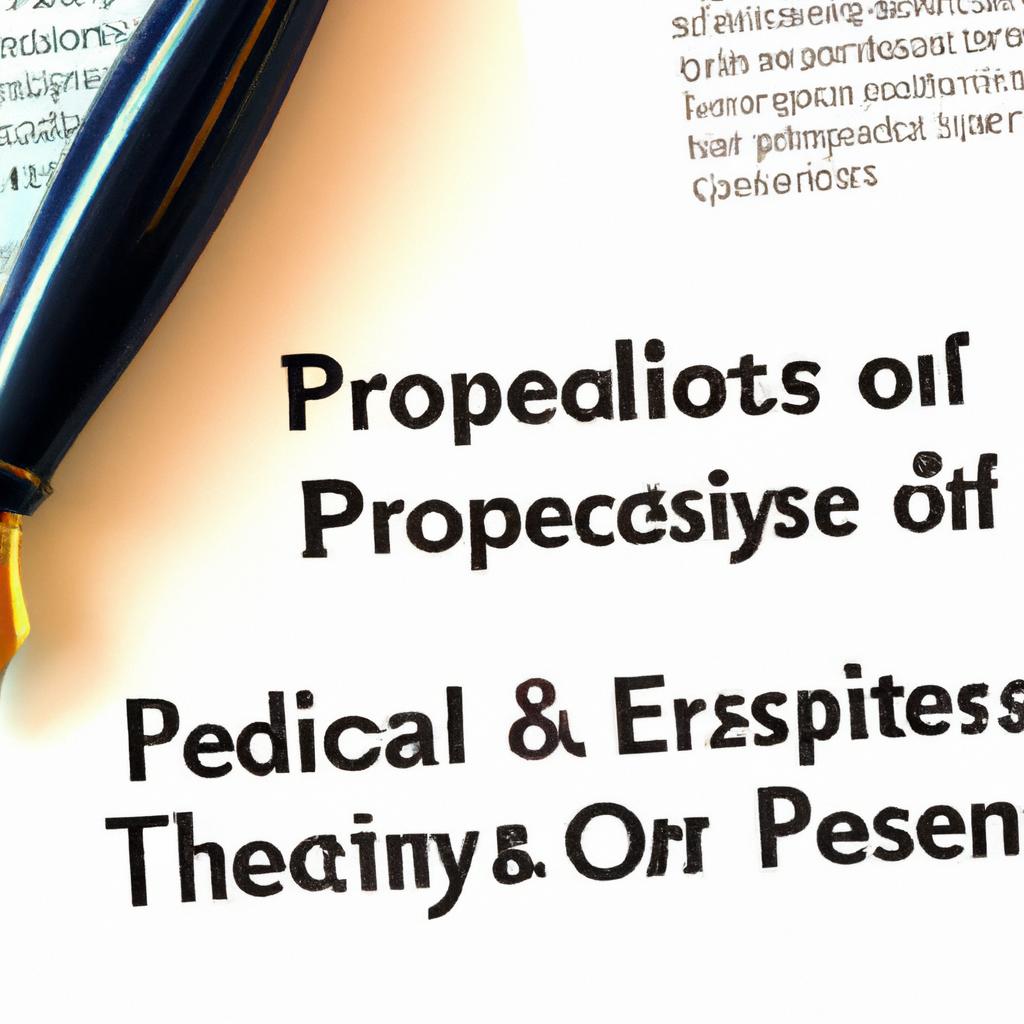When it comes to transferring ownership of property, understanding the difference between a warranty deed and a quit claim deed is essential. Both deeds serve as legal documents that convey ownership interests, but they differ in the level of protection they provide to the new owner. At Morgan Legal Group in New York City, we specialize in estate planning and real estate law, and we are here to guide you through the intricacies of these two important documents. Let us help you navigate the complexities of property ownership and ensure that your interests are protected.
Key distinctions between a warranty deed and a quit claim deed
When it comes to transferring real estate property, understanding the is essential. Both types of deeds serve different purposes and offer varying levels of protection to the buyer. Here are some important differences:
- Guarantees: A warranty deed guarantees that the seller owns the property and has the right to sell it. It also promises that the property is free from any liens or encumbrances. On the other hand, a quit claim deed makes no such guarantees. It simply transfers whatever interest the seller may have in the property.
- Legal recourse: With a warranty deed, the buyer can seek legal recourse against the seller if any issues arise regarding the property title. In contrast, a quit claim deed provides no legal recourse to the buyer. The buyer accepts the property “as is,” with no guarantees or warranties.

Understanding the implications of a warranty deed in real estate transactions
When navigating real estate transactions, it is crucial to understand the implications of different types of deeds, particularly the variances between a warranty deed and a quitclaim deed. A warranty deed is a legal document in which the seller guarantees that they hold clear title to a piece of real estate and has the right to sell it to the buyer. This type of deed provides the buyer with the highest level of protection, as it includes guarantees against any prior claims or defects in the title.
On the other hand, a quitclaim deed offers no such guarantees. Instead, it simply transfers whatever interest the grantor may have in the property, without making any promises about the quality of the title. While a warranty deed is typically used in traditional real estate transactions to ensure the buyer receives clear title, a quitclaim deed is more commonly employed in situations where the parties know and trust each other, such as transfers between family members or in certain types of divorce proceedings.

Analyzing the benefits and limitations of a quit claim deed
There are several key differences between a warranty deed and a quit claim deed that play a crucial role in transferring property ownership. A warranty deed provides the buyer with guarantees regarding the property’s title, ensuring that there are no outstanding liens or encumbrances. This type of deed offers the highest level of protection to the buyer, as the seller is legally obligated to defend the title against any claims that may arise in the future. On the other hand, a quit claim deed offers no such guarantees, with the seller only transferring whatever interest they have in the property without making any promises about the status of the title.
While a warranty deed may provide more security to the buyer, a quit claim deed also comes with its own set of benefits. One major advantage of a quit claim deed is its simplicity and efficiency in transferring ownership. This type of deed is commonly used in situations where the parties involved have a pre-existing relationship, such as family members or divorcing spouses. Additionally, a quit claim deed can be useful in clearing up title issues or transferring property between related entities, making it a valuable tool in certain real estate transactions.
Recommendations for choosing the appropriate deed for property transfers
When it comes to property transfers, choosing the appropriate deed is crucial to ensure the transfer is legally binding and accurately reflects the intentions of the parties involved. Two common types of deeds used in property transfers are warranty deeds and quitclaim deeds. While both deeds serve the purpose of transferring ownership of real estate, there are key differences between the two that individuals should be aware of.
<p>Warranty deeds provide a higher level of protection for the buyer compared to quitclaim deeds. With a warranty deed, the seller guarantees that they have clear title to the property and have the right to sell it. In contrast, a quitclaim deed offers no such guarantee and only transfers whatever interest the seller may have in the property. It is essential to carefully consider the implications of each type of deed before choosing the most appropriate one for your property transfer needs.</p>Q&A
Q: What is the main difference between a warranty deed and a quitclaim deed?
A: A warranty deed guarantees the grantor has clear title and the right to sell the property, while a quitclaim deed transfers whatever interest the grantor has in the property without any guarantees.
Q: Which type of deed offers more protection to the buyer?
A: A warranty deed offers more protection to the buyer because it ensures that the grantor will defend the title against any competing claims.
Q: Are there any situations where a quitclaim deed would be more appropriate to use than a warranty deed?
A: Yes, a quitclaim deed is often used in situations where the grantor cannot guarantee a clear title, such as transferring property between family members or in divorces.
Q: Do both types of deeds require the same legal processes to be valid?
A: Yes, both types of deeds require the same legal processes, such as signing in front of a notary and recording with the county or city.
Q: Can a quitclaim deed be upgraded to a warranty deed at a later date?
A: No, once a quitclaim deed is executed, it cannot be upgraded to a warranty deed. It would require a completely new and separate deed to be created.
Q: Which type of deed is more commonly used in real estate transactions?
A: Warranty deeds are more commonly used in real estate transactions because they provide more protection to the buyer and are considered a stronger form of deed.
Final Thoughts
In conclusion, understanding the difference between a warranty deed and a quitclaim deed is essential when dealing with property transfers. While both serve the purpose of transferring ownership, they vary in their level of protection and guarantee. Whether you are buying or selling property, it is important to consider the type of deed being used to ensure a smooth and secure transaction. Make sure to consult with a real estate professional or attorney to determine which deed is best suited for your specific needs. Remember, knowledge is power when it comes to safeguarding your property rights. Choose wisely and pave the way to a secure future in real estate.
 Title: Understanding the Difference between a Warranty Deed and a Quit Claim Deed: A Comprehensive Guide
Title: Understanding the Difference between a Warranty Deed and a Quit Claim Deed: A Comprehensive Guide
Introduction:
When it comes to transferring ownership of a property, there are two common types of deeds used in the United States – warranty deeds and quit claim deeds. Both serve as legal documents that transfer property rights from one party to another, but they have significant differences that are important to understand before proceeding with a property transaction.
In this article, we’ll discuss the meaning and purpose of warranty deeds and quit claim deeds, their differences in terms of rights and protections, the situations in which they are commonly used, and the benefits and drawbacks of each.
What is a Warranty Deed?
A warranty deed is a legal document that transfers ownership of a property from one person or entity (the grantor) to another (the grantee). It guarantees that the grantor has the legal right to transfer the property and that there are no undisclosed claims or liens against it.
In simpler terms, a warranty deed provides the grantee with a guarantee or warranty against any claims that may arise against the property in the future. This makes it the most common type of deed used in real estate transactions.
What is a Quit Claim Deed?
A quit claim deed is also a legal document used to transfer property ownership, but it does not provide any guarantees or warranties. It transfers whatever interest the grantor has in the property, without any promises about the validity of the title.
In other words, a quit claim deed is a more “raw” form of property transfer, as it does not offer any protection against undisclosed liens or title issues.
Differences in Rights and Protections:
A warranty deed provides the grantee with several important rights and protections, including:
1. Warranty of Title: With a warranty deed, the grantor guarantees that they have the legal right to transfer the property and that there are no undisclosed claims or liens against it. This is known as the warranty of title.
2. Covenant of Seisin: This promises that the grantor is the rightful owner of the property and has the legal right to transfer it.
3. Covenant of Quiet Enjoyment: This guarantees that the grantee’s right to possess and enjoy the property will not be disturbed by any past or future claims or encumbrances.
4. Covenant of Warranty: The grantor guarantees to defend the grantee’s title against any claims made by third parties.
On the other hand, a quit claim deed offers few rights and protections to the grantee. It transfers whatever interest the grantor has in the property, without any guarantees or warranties. This means that the grantee will not be protected if any title issues or undisclosed claims against the property arise in the future.
Situations where Warranty Deeds are Commonly Used:
Warranty deeds are commonly used in real estate transactions such as:
1. Selling or buying a property: A seller typically uses a warranty deed to transfer the ownership of the property to the buyer and give them the legal rights and protections associated with it.
2. Transferring property between family members: Parents often use a warranty deed to transfer a property to their children or other family members.
3. Inheritance: A warranty deed may be used to transfer the property to an heir after the death of the previous owner.
4. Mortgage or loan application: When applying for a mortgage or loan, the lender will require a warranty deed to ensure that the title is clear and free of any undisclosed claims or liens.
Situations where Quit Claim Deeds are Commonly Used:
Quit claim deeds are commonly used in the following situations:
1. Divorce or separation: In case of a divorce or separation, one spouse may use a quit claim deed to transfer their share of the property to the other spouse.
2. Transfer of property to a family member: If a property owner wants to add a family member to the ownership of a property, they may use a quit claim deed to transfer their interest.
3. Clearing up title issues: Quit claim deeds may be used to resolve issues such as disputed ownership, boundary disputes, or other title issues.
Benefits and Drawbacks of Warranty Deeds:
Some of the benefits of using a warranty deed include:
1. Legal protection for the grantee: A warranty deed offers the grantee secure ownership of the property and legal protection against any title issues or undisclosed claims.
2. Peace of mind for the buyer: With a warranty deed, a buyer can feel secure in their investment and be certain that there will not be any future legal complications.
3. Suitable for transactions involving a significant amount of money: For high-value real estate transactions, a warranty deed is essential as it provides strong legal protection for the parties involved.
On the other hand, some potential drawbacks of warranty deeds are:
1. More complicated and expensive: Preparing a warranty deed usually requires the assistance of a lawyer, which can add to the overall cost of the transaction.
2. Longer processing time: Due to the legal complexities and title searches involved, warranty deeds may take longer to process and complete.
Benefits and Drawbacks of Quit Claim Deeds:
Some of the benefits of using a quit claim deed include:
1. Simpler and cheaper: A quit claim deed is easier and faster to prepare than a warranty deed, making it a more affordable option.
2. No title search or guarantee of title: This deed can be used to transfer ownership without going through the lengthy process of a title search, which can save time and money.
3. Useful for informal agreements: If two parties have an informal agreement about transferring property, a quit claim deed can be used to make it official.
However, some potential drawbacks of quit claim deeds are:
1. Lack of legal protection for the grantee: Quit claim deeds provide no warranty or guarantee of the title, which can be a risky move for the grantee in case of any title issues or undisclosed claims.
2. Not suitable for high-value transactions: Due to the lack of legal protection, quit claim deeds are not recommended for high-value real estate transactions.
Conclusion:
In conclusion, warranty deeds and quit claim deeds are two different types of legal documents used to transfer property ownership. While a warranty deed provides strong legal protection for the grantee, a quit claim deed has fewer rights and protections. It is important to understand the differences between these deeds and choose the one that best suits your needs before proceeding with a property transaction. Consulting a real estate lawyer can also help ensure a smooth and secure transfer of ownership.











